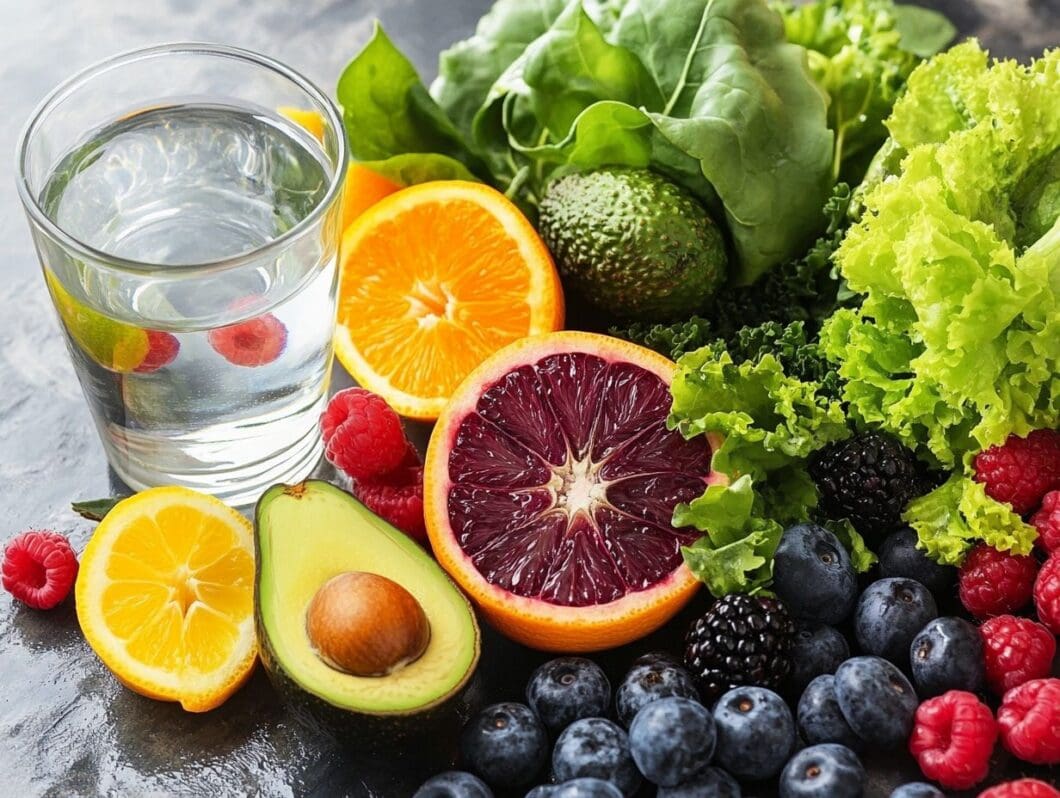Achieving clear, radiant skin often begins with what’s on your plate. The connection between diet and skin health is profound, with certain foods promoting a glowing complexion while others can lead to breakouts and irritation.
This article explores the impact of nutrition on your skin, highlighting nutrient-rich foods that nourish and rejuvenate, as well as those to avoid.
We’ll also discuss the crucial role of hydration and suggest key supplements, guiding you toward creating a personalized diet plan for optimal skin health.
Dive in to discover how simple dietary changes can transform your skin!
Key Takeaways:
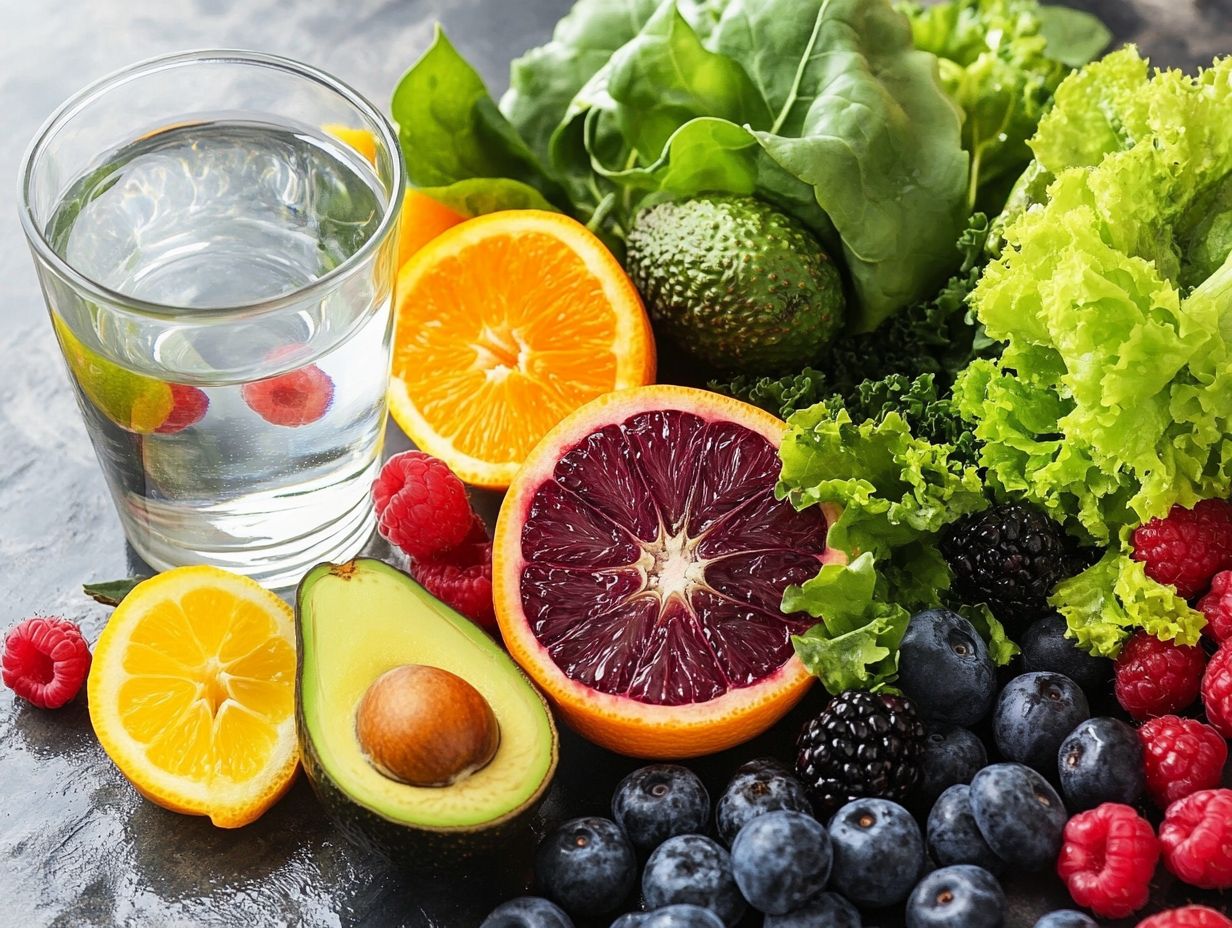
1.
2.
3.
4.
5.
6.
The Connection Between Diet and Skin Health
The intricate relationship between diet and skin health has garnered increasing recognition in recent years, supported by scientific evidence indicating that specific dietary factors can profoundly influence the quality of skin. A balanced diet, abundant in antioxidants, vitamins, and essential fatty acids, is associated with clearer and healthier skin.
Conversely, poor dietary choices, particularly the consumption of high glycemic index foods and dairy products, may exacerbate skin conditions such as acne and inflammation. Understanding this relationship enables individuals to make informed dietary decisions that promote overall skin health.
Understanding the Impact of Diet on Skin
Understanding the impact of diet on skin health is essential for individuals aiming to achieve clear skin and address concerns such as acne and inflammation.
Research demonstrates that incorporating a variety of food groups can significantly enhance skin appearance and overall health. For instance, foods rich in omega-3 fatty acids, including fatty fish like salmon and walnuts, have been shown to reduce inflammation and improve skin hydration. A study published in the Journal of Lipid Research emphasizes how omega-3s support skin barrier function, while antioxidants found in fruits and vegetables, such as blueberries and spinach, protect the skin from oxidative stress and premature aging.
In contrast, diets high in glycemic index foods—such as white bread and sugary snacks—can result in spikes in blood sugar levels, potentially exacerbating acne by increasing inflammation. Additionally, research has linked dairy products, particularly skim milk, to skin issues due to their possible hormonal effects.
Balancing these dietary factors can enable individuals to take proactive measures towards achieving healthier skin.
Foods to Eat for Clear Skin
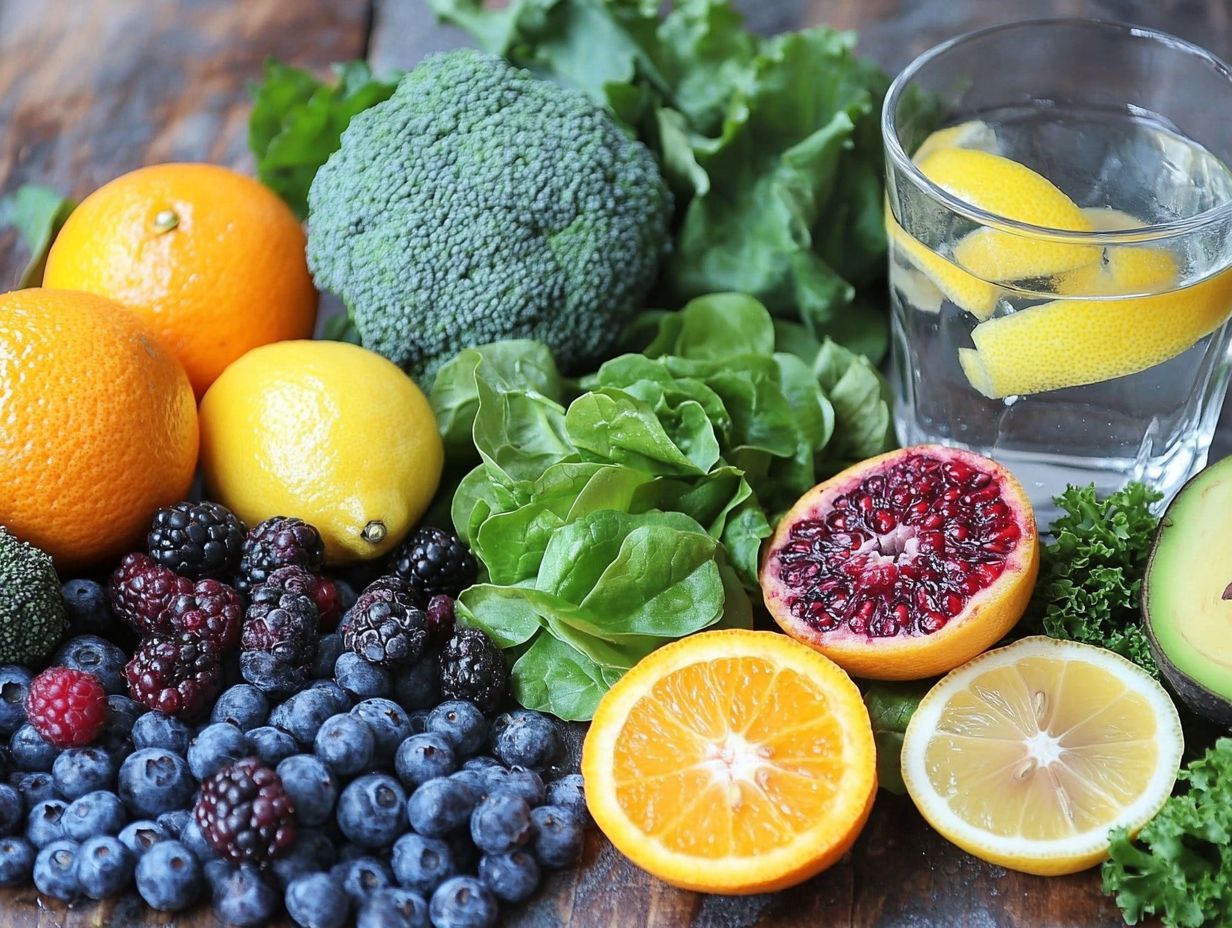
In the pursuit of clear and overall healthy skin, the incorporation of specific nutrient-rich foods into one’s diet can yield significant benefits. Foods that are high in antioxidants, vitamins, and omega-3 fatty acids are essential for maintaining skin elasticity, promoting collagen production, and reducing inflammation, all of which contribute to a radiant complexion.
Notable examples include fatty fish, red grapes, and broccoli, which are rich in the essential nutrients that support skin health.
Top Nutrient-Rich Foods for Skin Health
To achieve clear skin, it is essential to incorporate nutrient-rich foods that promote skin health, particularly those high in omega-3 fatty acids, antioxidants, and essential vitamins.
Among these food options, fatty fish such as salmon and mackerel are particularly notable for their high omega-3 fatty acid content, which is recognized for its ability to hydrate the skin and reduce inflammation. Additionally, the inclusion of green tea in daily routines can be advantageous, as it is rich in potent antioxidants known as catechins, which may protect the skin from UV damage and enhance hydration levels.
Nuts, including walnuts and almonds, serve as excellent sources of healthy fats, vitamins E and B, and various minerals, all of which contribute to improved skin elasticity and overall appearance.
By selecting these nutrient-dense foods, individuals can significantly enhance the health and vitality of their skin. For more insights, check out The Role of Diet in Achieving Clear Skin.
Foods to Avoid for Clear Skin
Avoiding specific foods is equally important as incorporating beneficial options when aiming for clear skin and managing acne. Many individuals may not recognize that certain dietary choices, such as refined sugars, processed foods, and dairy products, can trigger inflammation and worsen skin conditions.
By exercising mindfulness regarding dietary intake, one can significantly enhance the overall appearance and health of the skin.
Common Culprits of Skin Issues
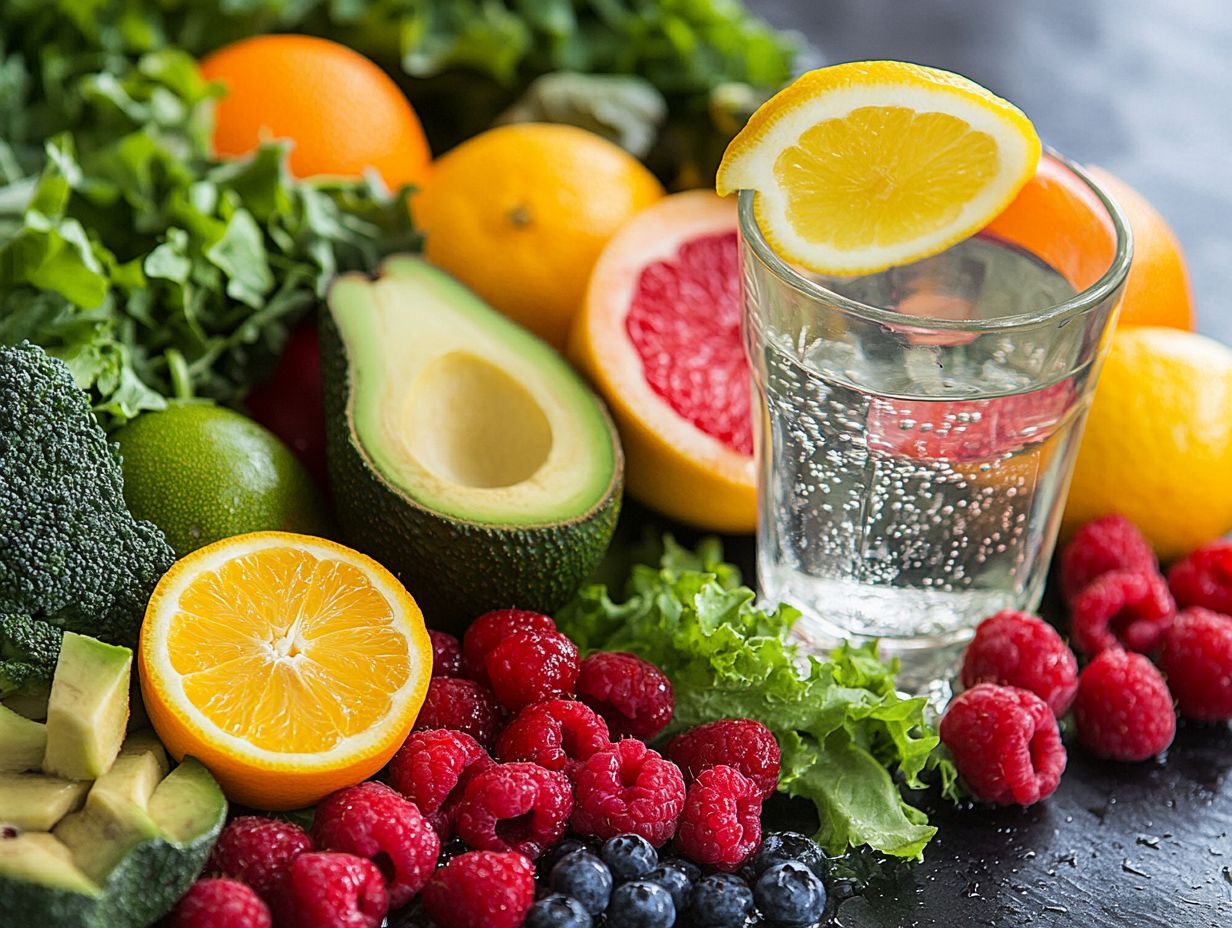
Identifying common contributors to skin issues is essential for individuals seeking to improve their skin health and achieve a clear complexion.
For example, dairy products and foods high in refined sugars can significantly worsen acne and other skin conditions. Dairy may induce hormonal imbalances that increase oil production, whereas refined sugars can lead to insulin spikes, resulting in inflammation and clogged pores. The relationship between diet and skin health is intricate; many individuals may not recognize that what they consume can directly affect their skin’s appearance.
Instead of dairy, alternatives such as almond or coconut milk can be beneficial for skin health, while whole fruits and complex carbohydrates, like quinoa, offer essential nutrients without contributing to inflammation. Choosing these healthier options may support clearer skin and enhance overall well-being.
The Importance of Hydration for Clear Skin
Hydration is essential for achieving clear skin and maintaining overall skin health, as it facilitates cellular functions and supports the skin’s natural barrier against inflammation.
Adequate water intake, along with the consumption of hydrating foods, assists in flushing out toxins, promoting rejuvenation, and delivering essential nutrients that are vital for skin health. Recognizing the significance of hydration enables individuals to make informed choices that contribute to improved practices for achieving radiant skin.
How Water Intake Affects Skin Health
Water intake plays a crucial role in skin health, with proper hydration being essential for achieving clear skin and maintaining its elasticity.
Research indicates that sustaining adequate hydration levels can lead not only to improved skin moisture but also to a noticeable reduction in the appearance of fine lines and wrinkles. Experts recommend a daily intake of at least eight 8-ounce glasses of water as a general guideline, although individual hydration needs may vary based on factors such as activity level and climate.
Along with water consumption, incorporating hydrating foods such as cucumbers, oranges, and strawberries can further enhance skin hydration. These foods, which are rich in vitamins and antioxidants, support skin texture and overall health, offering a comprehensive approach to achieving the radiant complexion that many individuals seek.
Supplements for Clear Skin
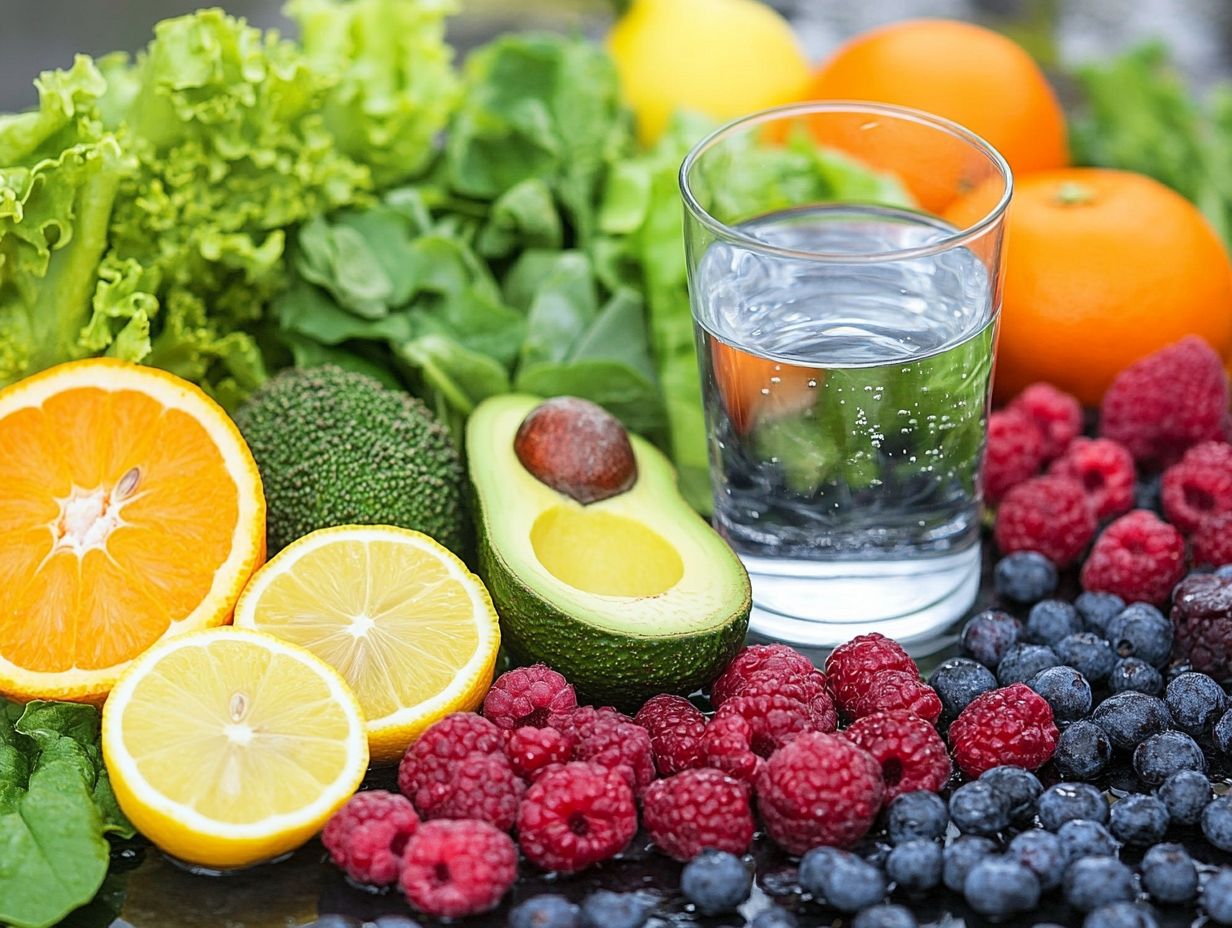
Along with maintaining a balanced diet, specific supplements can enhance the pursuit of clear skin by supplying essential vitamins, minerals, and omega-3 fatty acids that may be insufficient in an individual’s dietary intake.
These nutrients are crucial for collagen production, antioxidant protection, and the reduction of inflammation, all of which are fundamental for achieving and sustaining healthy, radiant skin.
Key Vitamins and Minerals for Skin Health
Key vitamins and minerals are essential for promoting skin health and achieving a clear complexion, with antioxidants such as Vitamin C and Vitamin A demonstrating particular effectiveness.
These vital nutrients operate synergistically to address various skin concerns, including dryness and inflammation. For example, Vitamin E is recognized for its protective properties against oxidative stress, while zinc is instrumental in reducing acne through the regulation of oil production.
Furthermore, Omega-3 fatty acids, found in fish such as salmon and seeds like flax, contribute to the maintenance of skin elasticity and moisture. To enhance your intake of these nutrients, it is advisable to incorporate a diverse array of fruits and vegetables into your meals, or to consider a quality supplement following consultation with a healthcare professional.
Consistently consuming these nutrients can result in a marked improvement in skin vitality, lending it a more youthful and radiant appearance.
Creating a Clear Skin Diet Plan
Developing a comprehensive skin diet plan requires careful consideration of foods that enhance skin health while excluding those that may contribute to acne and inflammation. A balanced diet that prioritizes omega-3 fatty acids, antioxidants, and essential vitamins and minerals can assist individuals in attaining their skin health objectives.
This plan should be flexible and emphasize sustainable eating habits to ensure long-term benefits.
Tips for Incorporating Skin-Boosting Foods into Your Diet
Incorporating skin-boosting foods into one’s diet can be both enjoyable and straightforward by following a few simple strategies aimed at achieving clear and healthy skin.
It is advisable to begin by planning meals in advance, ensuring that a diverse selection of fruits, vegetables, and sources of omega-3 fatty acids are included in one’s diet. For example, one might prepare a colorful salad featuring spinach, avocado, and walnuts, complemented by a zesty lemon vinaigrette.
Additionally, individuals can explore various recipes, including smoothies that combine berries, chia seeds, and almond milk, which serve as an antioxidant-rich snack.
By gradually substituting less nutritious options with these heart-healthy ingredients, one can observe a significant improvement in skin health over time, all while maintaining a balanced and satisfying diet.


